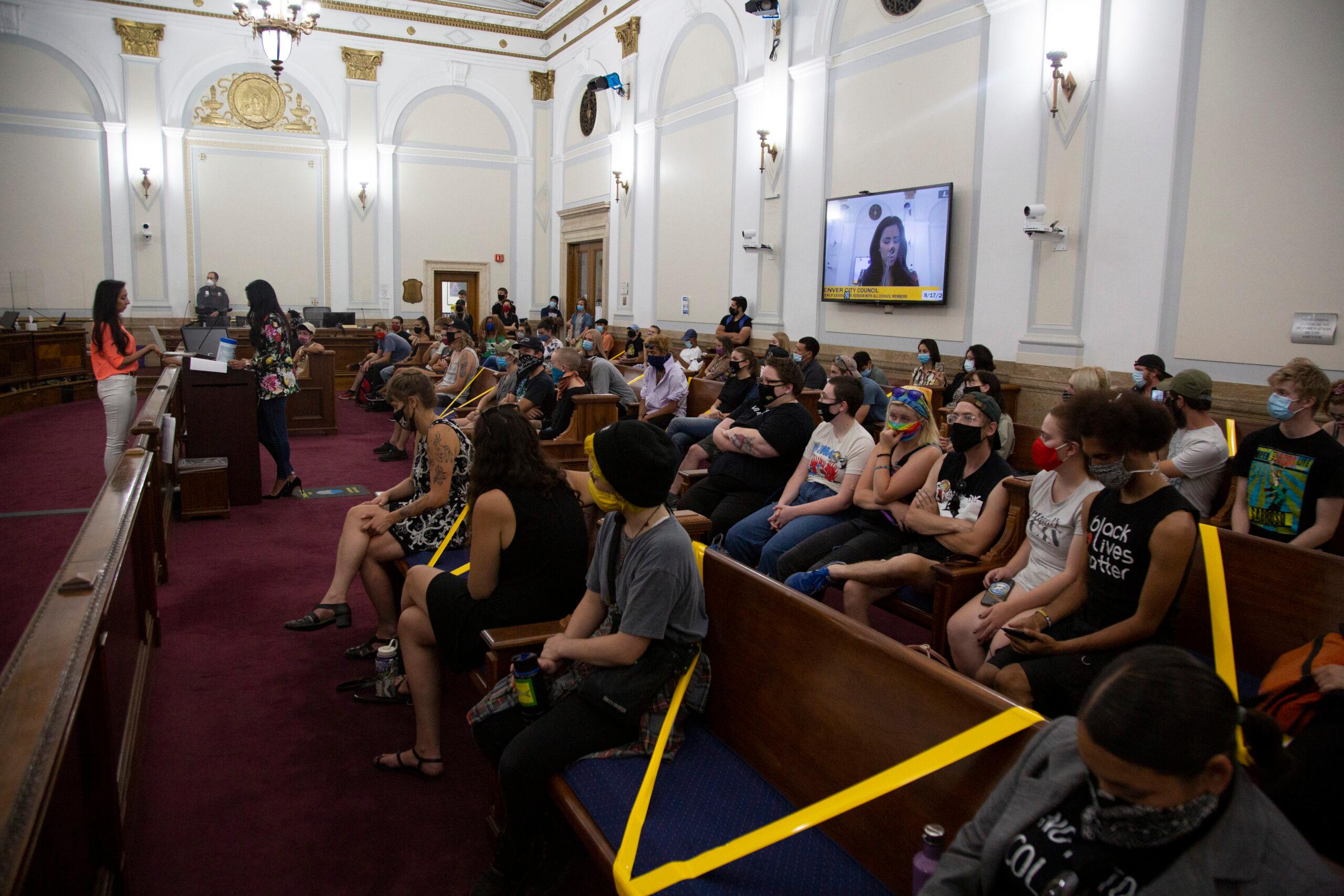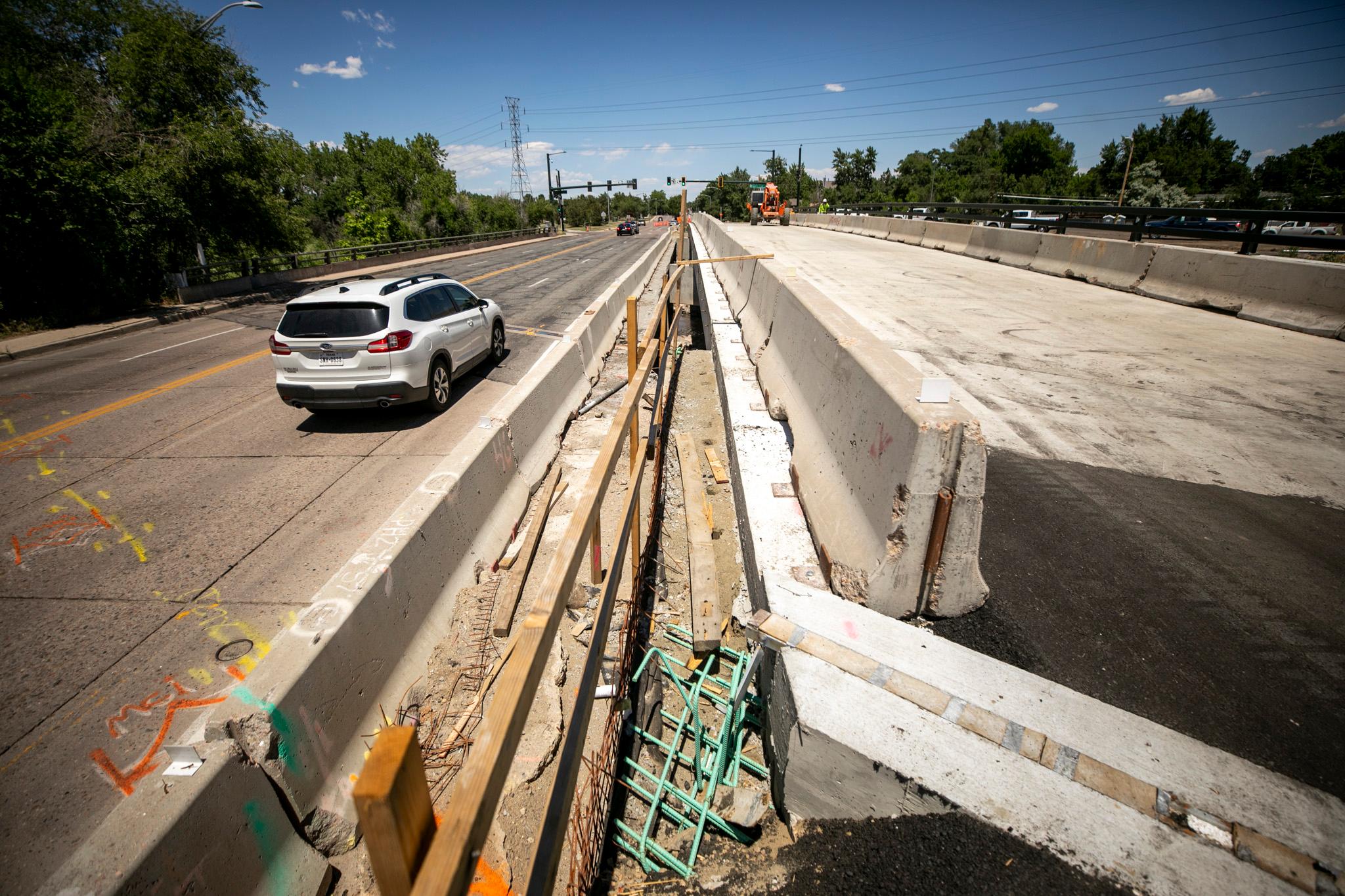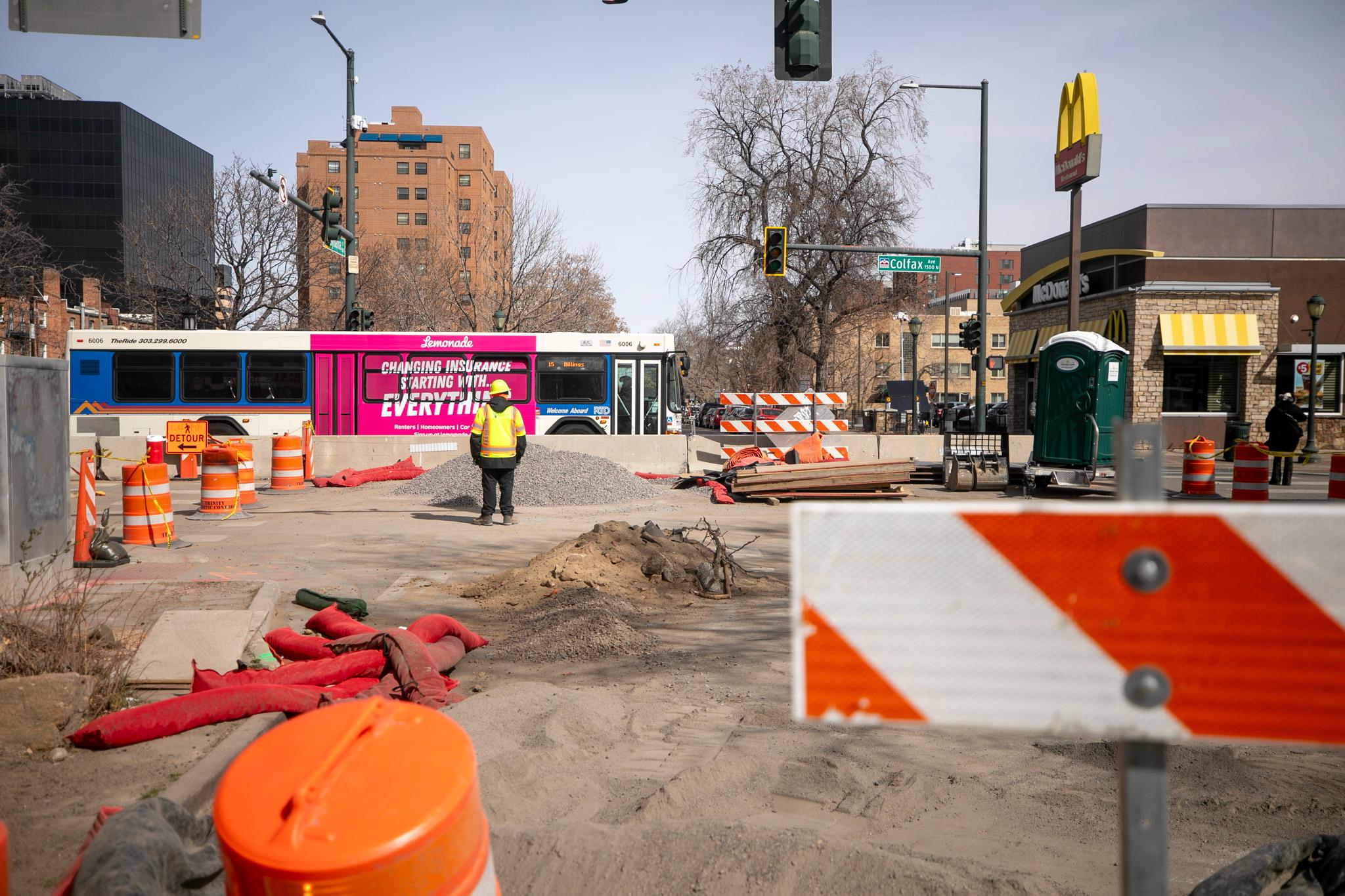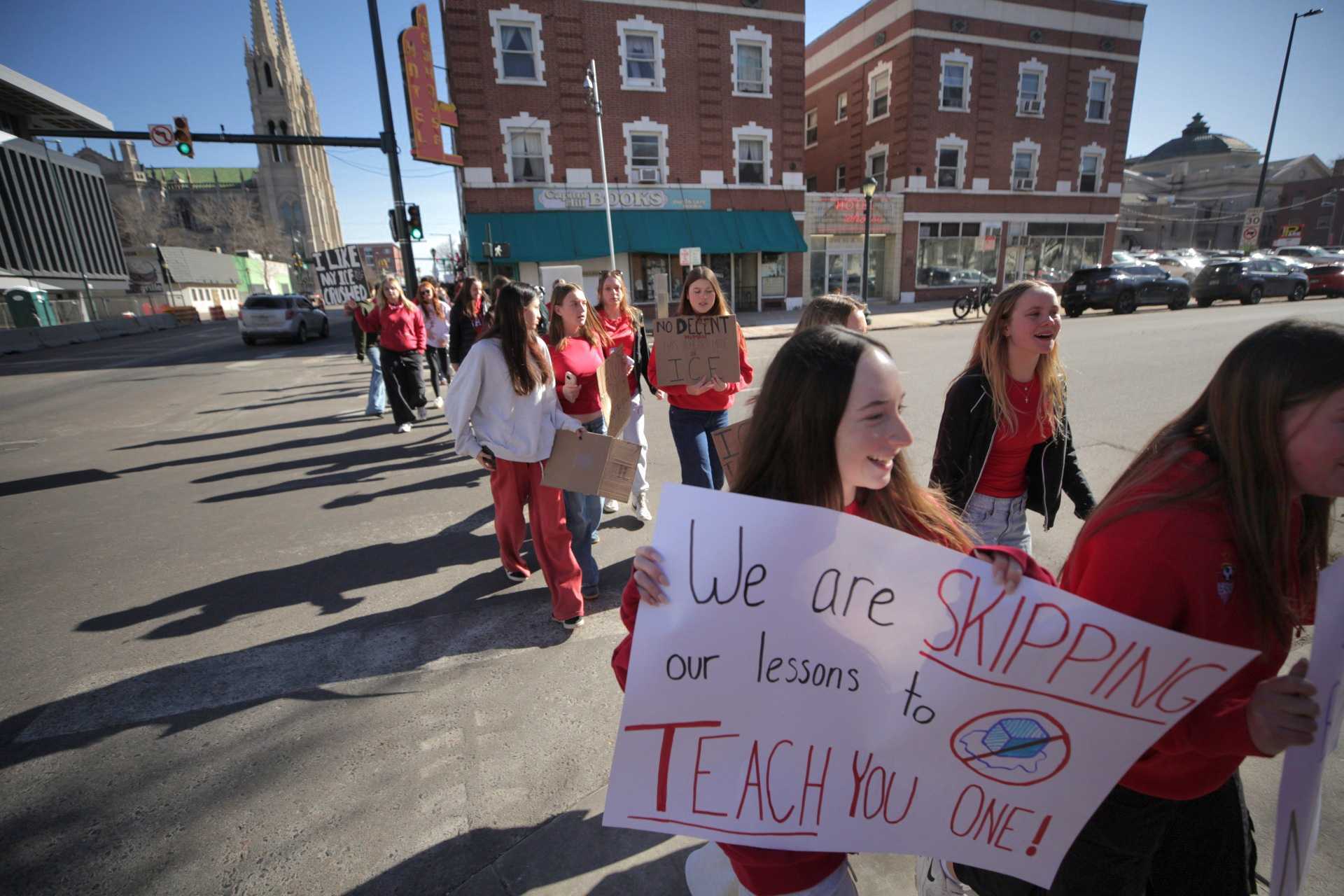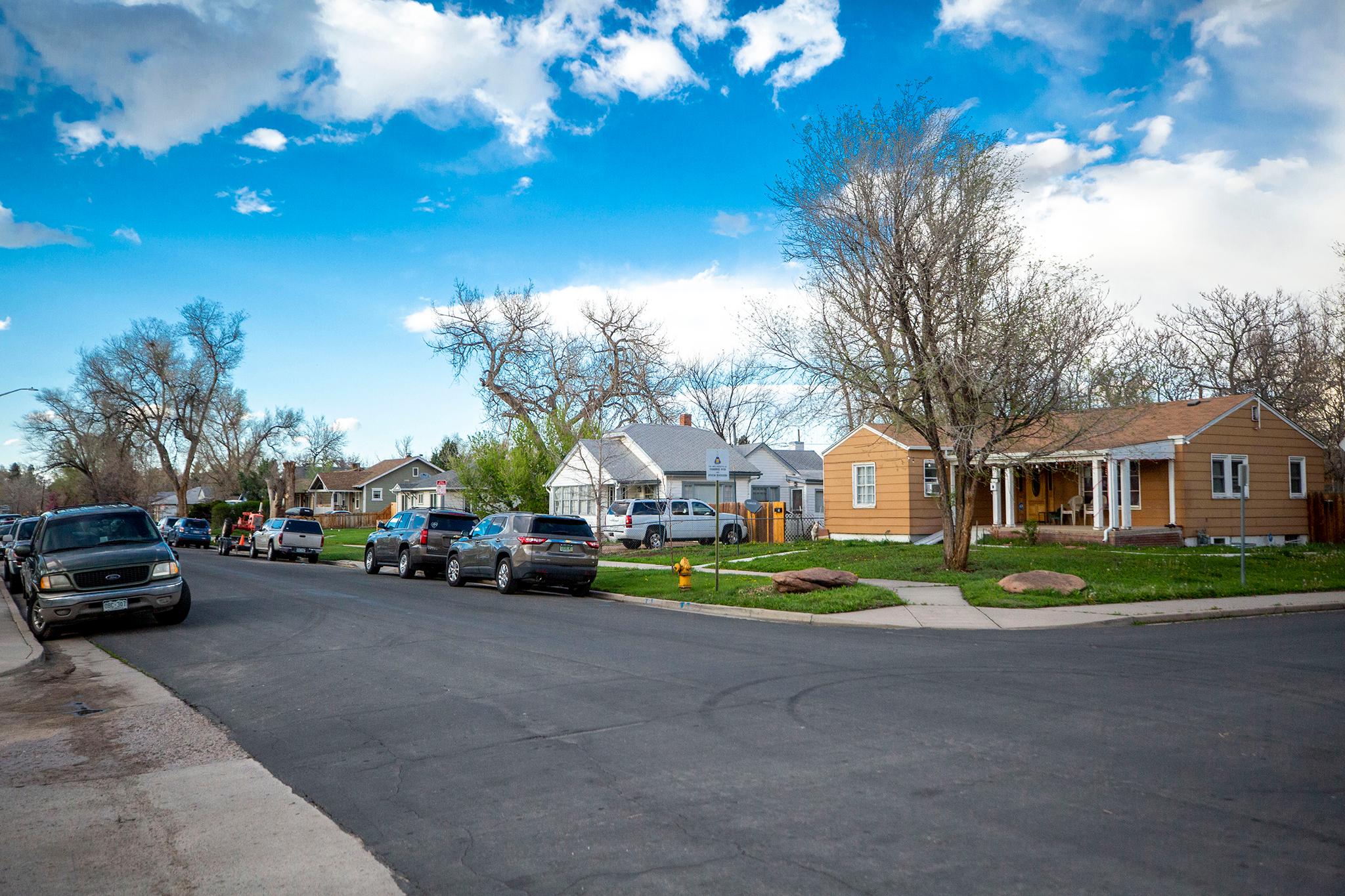A short-lived bill aimed at dissolving the Denver Police Department and replacing it with a "peacekeeping" alternative failed Monday during Denver City Council's weekly meeting.
Members voted 11 to 1 to kill the proposal, which would have asked voters to delete DPD from the city charter and replace it with a "peacekeeping office" aimed at ending police violence, especially against people of color, and preventing violent crime by addressing its root causes, including mental and behavioral health, job insecurity, hunger and homelessness.
Candi CdeBaca, the bill's sole sponsor, was the sole yes vote Monday. Every other council member voted against the measure except Chris Hinds, who abstained because he said he had not realized the final bill language was posted online and had not read it.
CdeBaca framed the measure as a direct reflection of what an energized public had been asking for since before -- but particularly after -- protests over George Floyd.
"We've worn the (Black Lives Matter) masks. We've shared public condolences and moments of silence for lives lost," CdeBaca said. "We've told rooms full of hundreds of community members that we hear them. And we want to do something. We've told them that they need to participate, not just in the protests, but it changing the policies and laws that are at the root of their strife. And then we told them that we wouldn't listen to them."
CdeBaca was referencing when the council canceled in-person meetings after protests, citing COVID-19.
CdeBaca sponsored the bill and acted as an adviser, but local organizers created it. Ru Johson, Katie Leonard and Kerrie Joy Landell (CdeBaca's wife) shaped the potential ballot measure out of a crucible that is the current civil rights movement, Johnson said.
The group got feedback on their proposal "organically on social media," Johnson said. They surveyed about 4,000 residents citywide and engaged local groups like the Antiracist Club and the Denver Creative Industry Alliance.
The final ballot proposal, filed Monday morning, dismantled the police department by removing it from the charter. CdeBaca said her goal was not to stop people from responding to emergencies but to change who responds and how they do it.
Some of her colleagues said they resented or regretted CdeBaca's approach, which entailed filling the bill without conferring with them.
Councilwoman Debbie Ortega compared CdeBaca's tactic to "bullying." Councilwoman Amanda Sandoval pleaded with CdeBaca to follow the typical process, which includes bringing bills to committee, more closely because she agrees with many of her ideas.
Councilman Kevin Flynn likened the legislative body to a "clown car pulling up." He accused CdeBaca of presenting the public with a false choice between voting for her proposal, which he framed as a half-baked idea that would result in emergency situations getting ignored, or siding with systemic racism.
"This proposal disrespects the broader community that has already been organizing on the solution and it lacks any transparency," Flynn said. "It's fundamentally flawed ... both from a constitutional, legal and practical standpoint."
CdeBaca admitted she didn't take the traditional approach but said it's not time for the status quo.
"No, the engagement did not conform to our standards. It was not on your terms," CdeBaca said. "And to be Frank, nothing has been traditional in 2020."
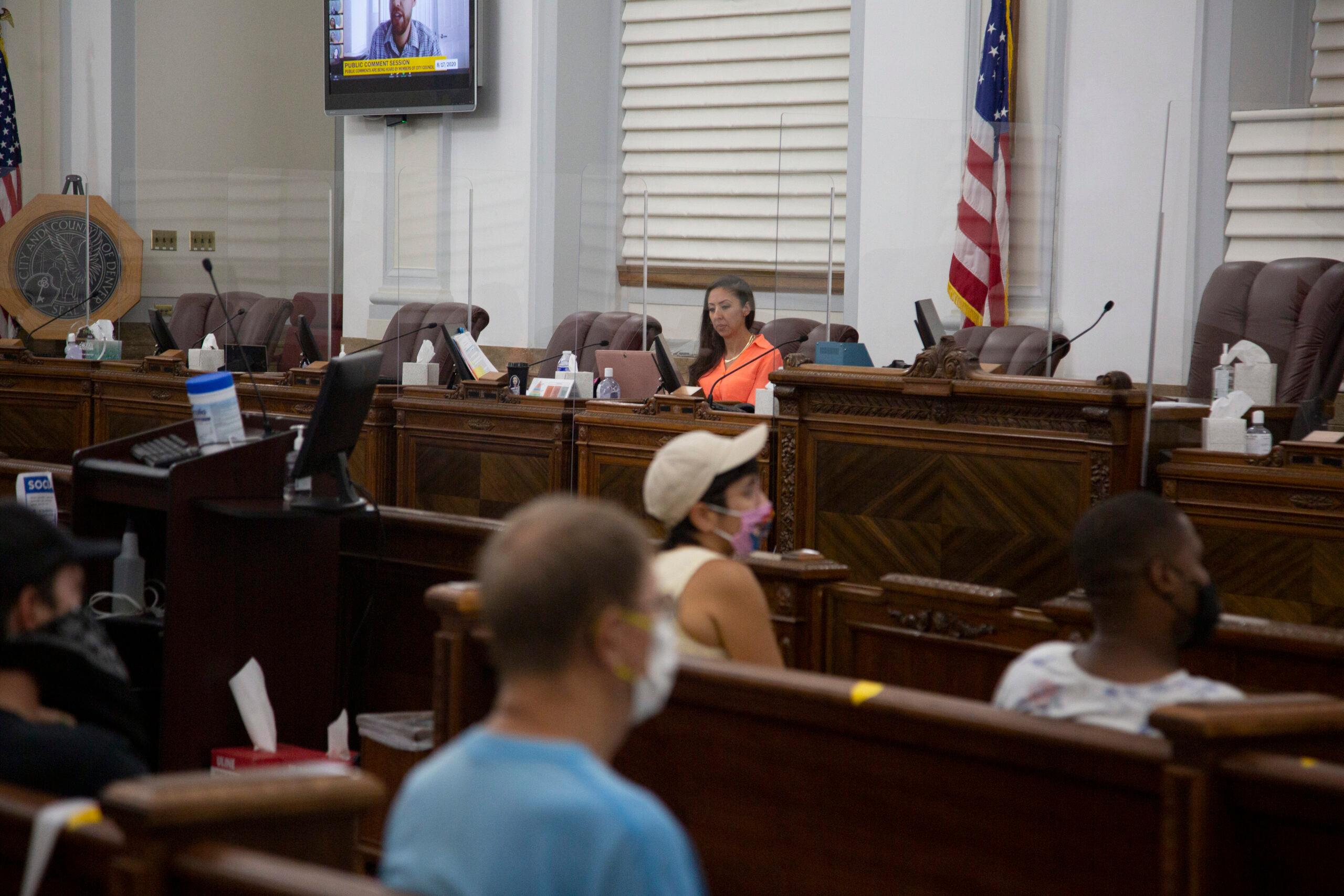
All signs point to reform, and it may or may not come directly from politicians.
Director of Safety Murphy Robinson has committed to major reforms but said Monday he was asked to "stepped aside" in order to let "the community" lead that process.
The Citizen Oversight Board, one of the police department's watchdogs, is coming at the transformation from one angle, but Councilwoman Robin Kniech said the city council should be complementing them.
"Reading the map on the wall, it doesn't like, this is going to be referred to the voters," Kniech said Monday before the vote. "But I don't believe that is the end of the discussion. I think one thing people are craving is, what is the next step? And I think that the next step for this body might be getting some expert support to help guide that."
Johnson was emphatic: that a similar ballot measure to dismantle DPD would come from city dwellers anxious for change.
"You should, 100 percent expect there to be continued outreach and continued movement," Johnson said.

